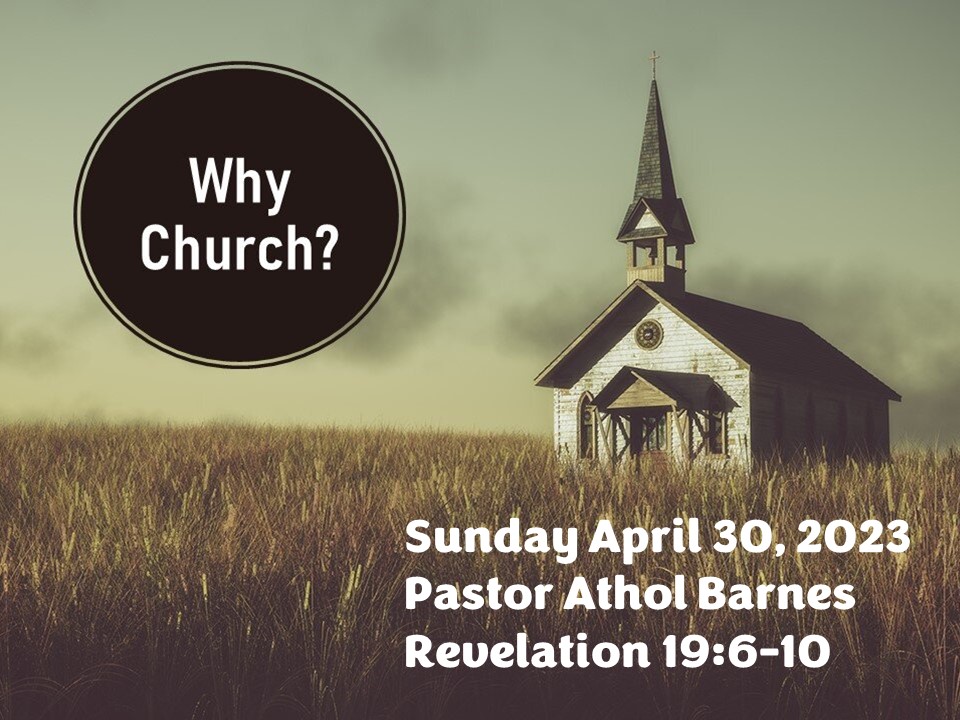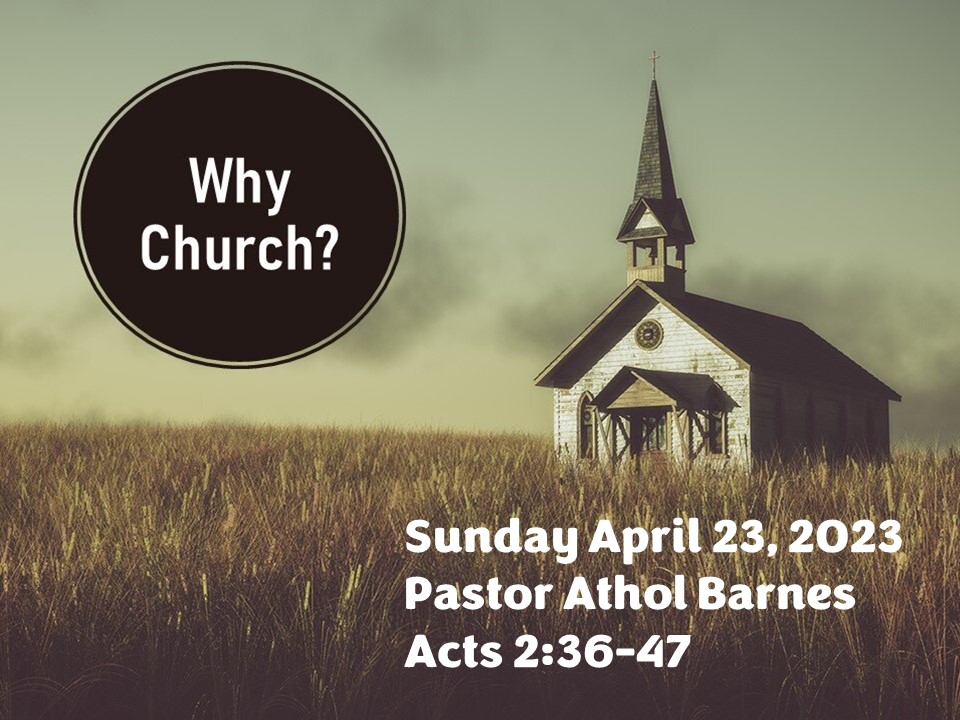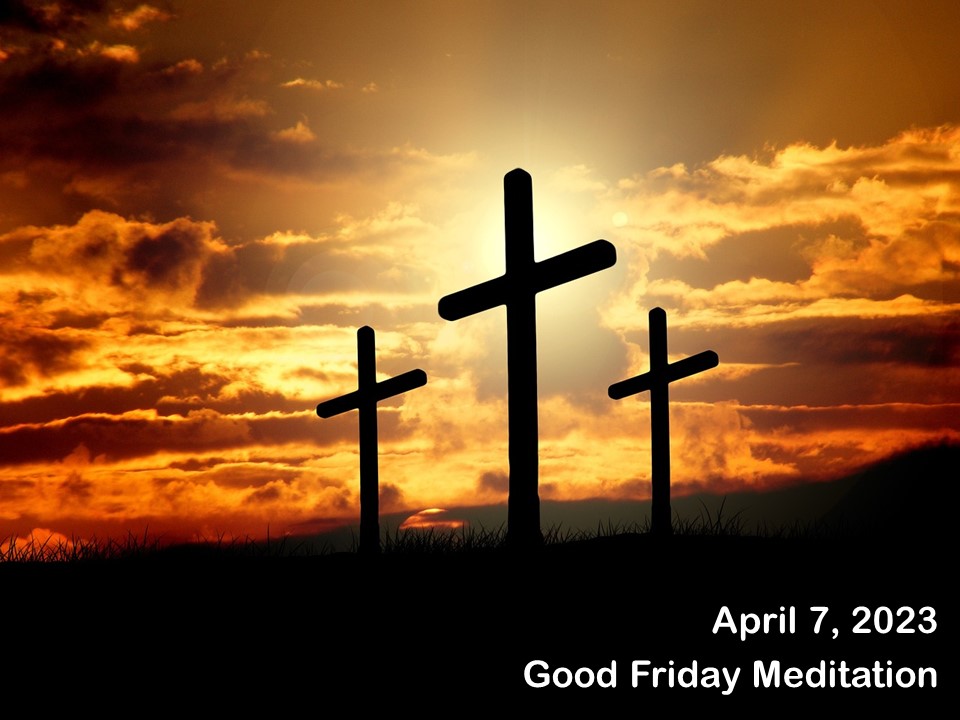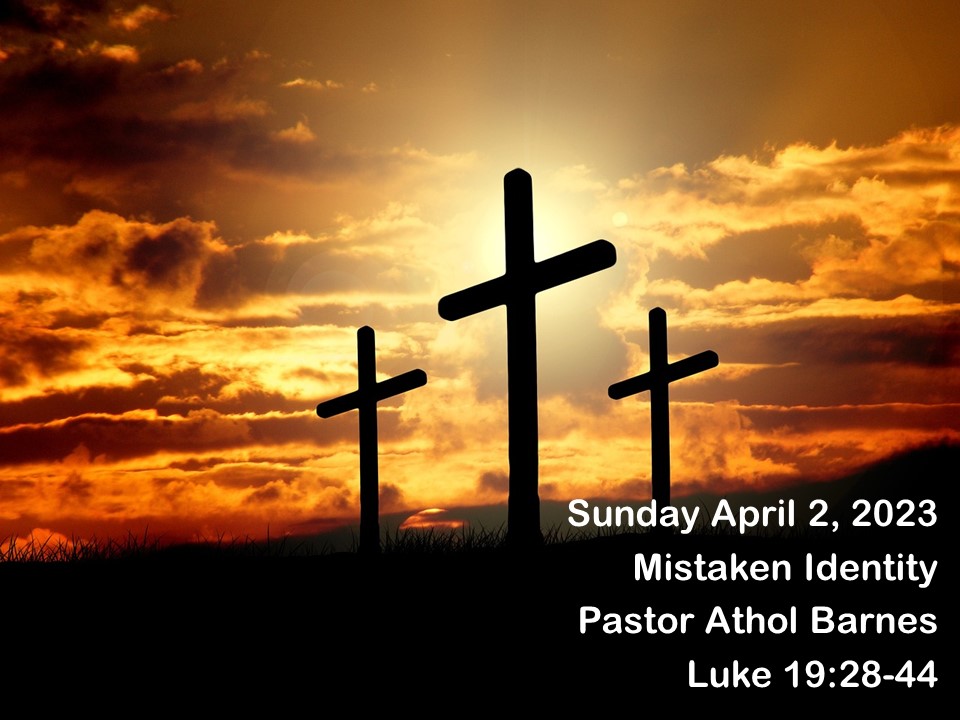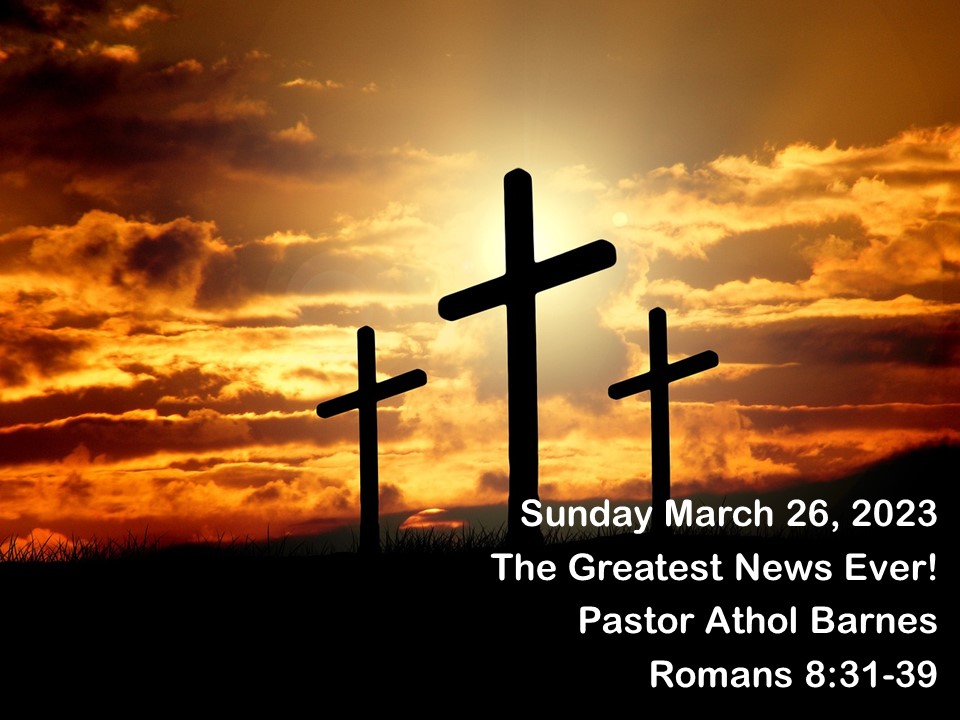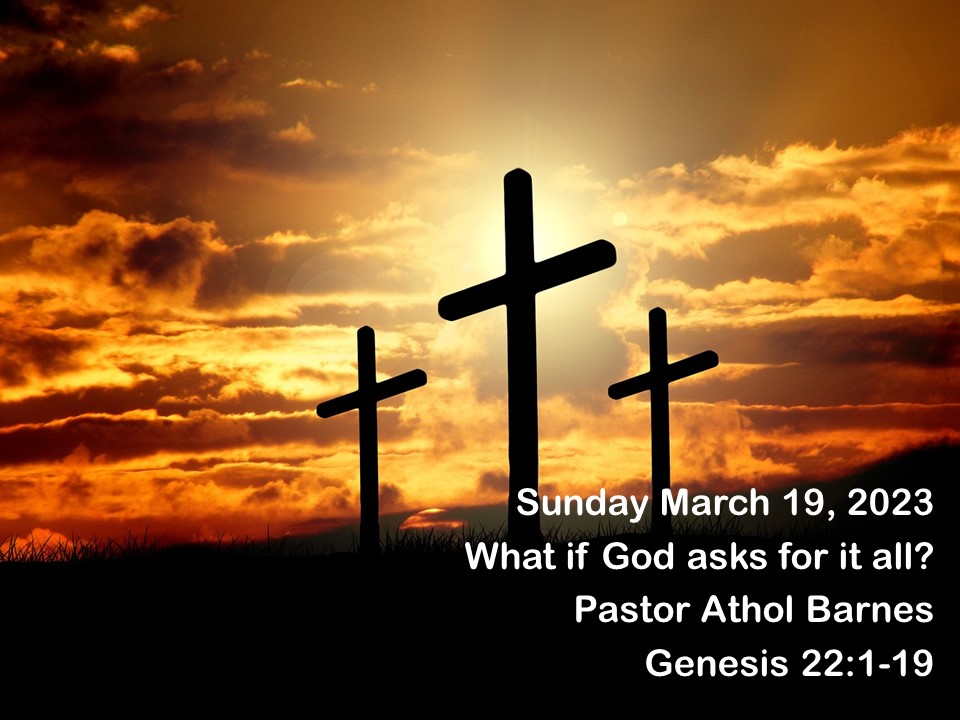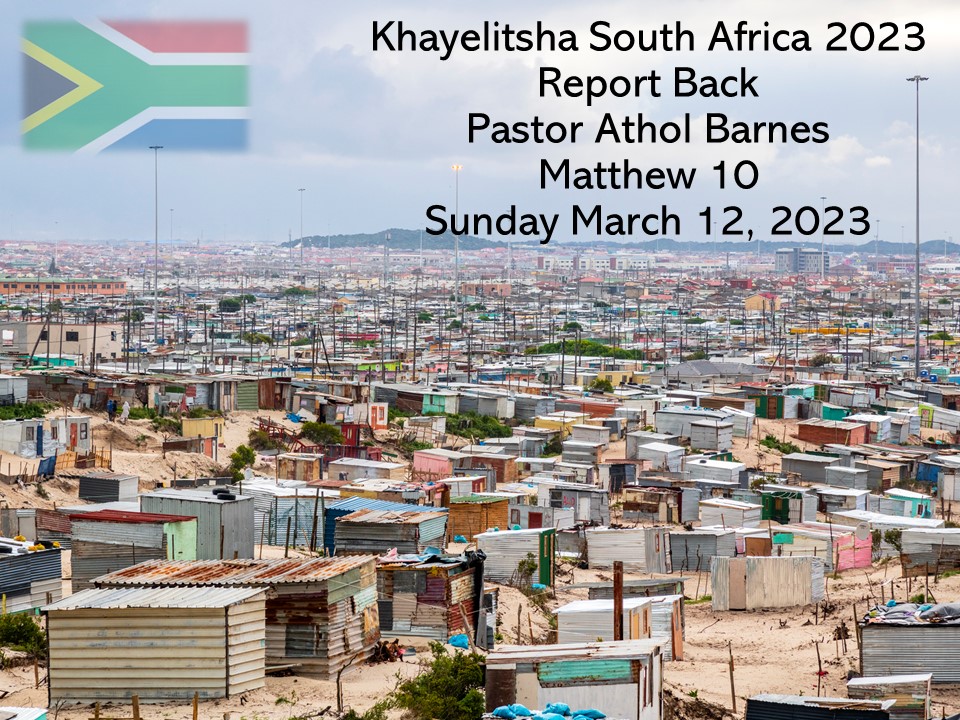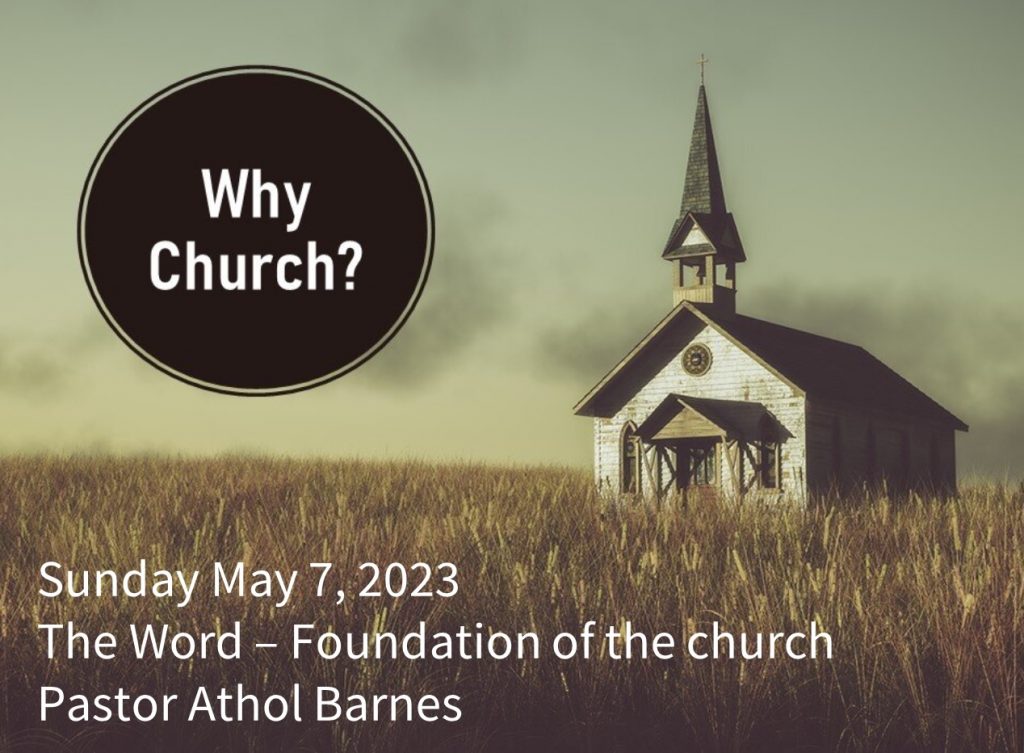
The Bible, the Word of God, is one of the foundational pillars of the church.
The opening verses of John’s Gospel is one of the most profound pieces of scripture and probably the greatest introduction to a book in the Bible. He goes back to Genesis 1 and uses the same language that was in the Torah, “in the Beginning, God…”. And then he uses the term “Word” for Jesus.
He writes that the Word was with God, and then he makes a bold statement, “the Word was God”. In fact, in the Greek, the order of the sentence reads, “and God was the Word”. But the definite article makes the “Word” the subject of the sentence.
If that wasn’t enough, he declares that this God/man is the one who spoke all of creation into existence by the power of his word.
This is Jesus, the creator God, and the revelation of Jesus in the Word of God carries more power than we could possibly imagine. It is not a collection of ancient texts that offer some wisdom.
God has been speaking to His creation from the beginning. Psalm 19 is a picture of God speaking through His creation, His general revelation. God spoke directly to Abraham, Moses, Samuel, and then through the prophets. God ultimately revealed himself through Jesus (see John 14:9).
In verse 4 of John 1 we read, “In him was life, and the life was the light of men.” Life is a key theme in the Gospel of John, the word is used 36 times in the book. One of the essential requirements for life is light.
When Jesus ascended into heaven, he sent the Holy Spirit. The Holy Spirit fills the followers of Jesus and enables them to be the light of the world. The Holy Spirit is the one who reveals truth, gives wisdom and understanding, as we feed on the Word of God.
And then in verse 5 we read, “The light shines in the darkness, and the darkness has not overcome it.” This is the ultimate spoiler, John hints at the beginning of the book, “hey, I want you to know how this ends, the light wins!”
The light always shines, and the church is now the carrier of the light. In the world in which we live, this is not a losing battle, there will always be opposition as long as there is darkness, but light always dispels darkness, it is a law of God’s creation established in Genesis 1:3. The church that has the Bible as its foundation, will always be the light in the darkness.
And there is a promise in this verse, it is not written in the past tense, it is a present aorist continuous sense, simply meaning, “the light has overcome, will overcome and will keep overcoming the darkness.”
We are living in an age of fear with all the information that we are exposed to from the media and entertainment world. Fear controls, fear paralyses. What are you afraid of today?
- What about the economy and the predicted financial collapse? “The light shines in the darkness, and the darkness has not overcome it.”
- What about the LGBTQ agenda for our children and grandchildren? “The light shines in the darkness, and the darkness has not overcome it.”
- What about the seemingly endless reports of murder and violence in our city? “The light shines in the darkness, and the darkness has not overcome it.”
- What about the war in Ukraine and Chinese saber rattling, what about a third world war? “The light shines in the darkness, and the darkness has not overcome it.”
- What about churches closing? It seems that we are losing ground in an increasingly secular world. “The light shines in the darkness, and the darkness has not overcome it.”
- What about the LGBTQ agenda for our children and grandchildren? “The light shines in the darkness, and the darkness has not overcome it.”
The light of the Word of God will never fail. Isaiah 25:3 reads, “You keep him in perfect peace whose mind is stayed on you, because he trusts in you.”
Keep your eyes on the Word of God (Jesus) and keep your eyes in the Word and you will know peace, because the darkness has not overcome it.
The Bible is by far the most printed book in all history, with somewhere between 6 and 9 billion copies printed. The next most printed book is the “Quotations from Chairman Mao Zedong”, with about 900 million copies in print. The Qur’an has approximately 800 million copies printed. In the 21st century, Bibles are being printed at a rate of around 80 million per year.
The Emperor Diocletian (AD 284-316) boasted, “I have completely exterminated the Christian writings from the face of the earth!” The very next emperor, Constantine, became a Christian and ensured that all churches received Bibles immediately. Every dictator who has been controlled by Satan throughout history has sought to eradicate the Bible, yet it stands (see 1 Peter 1:23-24).
The Bible is by far the most published, most read, most sold, most attacked, most offensive, most critiqued, most studied, most ignored, most influential, and most powerful book in all human history. So why do we not consume it every day?
Why do we think we can resist temptation, raise children, be the light, and live as overcoming Christians, by ignoring the reading and memorizing of the Word of God.
The church has the word of God as a foundation and pillar. Any church that removes or contradicts one part of scripture to satisfy a secular worldview, has ceased to exist as the Body of Christ. If the word cannot be trusted, then it cannot be foundational. If the Bible is not our authority, then what authority do we have?
We must remember that Jesus, the Word of God, is the head of the church and the bridegroom of the church.
Are you feeding on the Word? Allowing the Word to shine brightly in the darkness?


